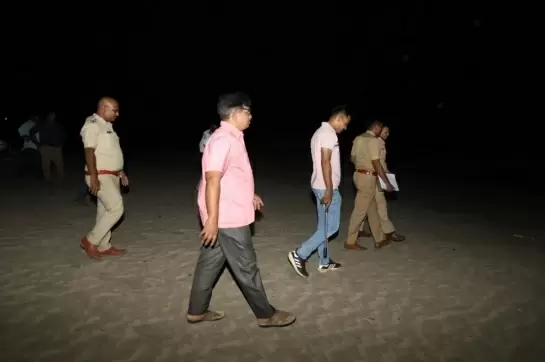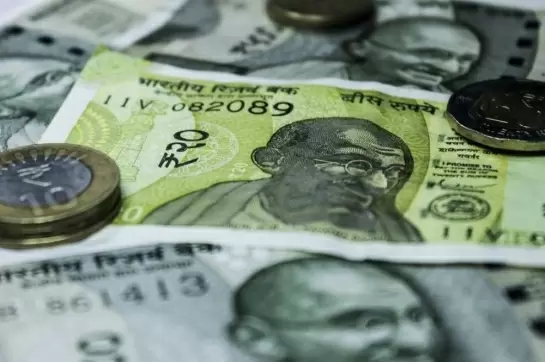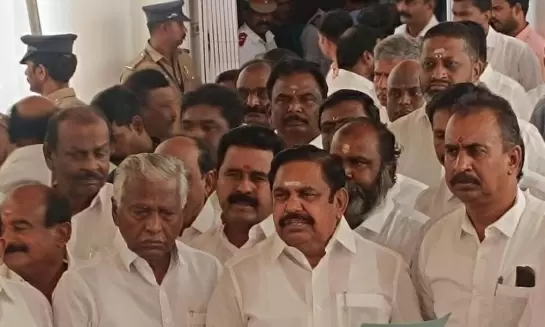UN endorses India's steps to address hunger, malnutrition
21-October-2019
The UN World Food Programme (UNWFP) has endorsed India's policy measures for addressing hunger and malnutrition to achieve Sustainable Development Goals (SDG).
Bishow Parajuli, Representative and Country Director to India, UNWFP, told IANS that India has all the ingredients in place to achieve SDG 2, which is to end hunger, achieve food security, improve nutrition and promote sustainable agriculture prior to the 2030 targets.
In 2015, India, along with other countries, signed the declaration on the 2030 Agenda for Sustainable Development, comprising 17 SDGs. Within this agenda, ending hunger, achieving food security and improved nutrition, and promoting sustainable agriculture was set as SDG 2.
UNWFP is the UN's food-assistance branch and the world's largest humanitarian organisation addressing hunger and promoting food security.
Parajuli said that while India has made progress in the last couple of decades on key indicators including economic growth, poverty reduction, food grains self-sufficiency and adoption of technological solutions and though there has been a drop in the malnutrition rates, the progress however, needs to be accelerated to achieve the SDGs, especially the SDG 2.
"India has all the ingredients in place to achieve this prior to the 2030 targets", he said.
"The government of India has in place a strong policy environment for addressing hunger and malnutrition" he added.
Elaborating on this, he said that the National Food Security Act 2013 (NFSA) makes food a legal entitlement for more than 67 per cent of the population, i.e., 800 million Indians.
"Taking this further, the Centre launched the National Nutrition Strategy in September 2017 which is a major step towards addressing malnutrition and hunger in a sustainable way", he said.
As part of the strategy, the flagship initiative of POSHAN Abhiyan, the Prime Minister's Overarching Scheme for Holistic Nourishment with a three-year budget of Rs 9,046.17 crore -- is looking at targets of reducing the level of stunting, undernutrition, anaemia and low birth weight babies by 2022.
"These are extremely important initiatives," Parajuli said, adding that "noth, the NFSA as well as the POSHAN Abhiyan are substantial steps taken by India to put the SDG firmly on the map".
The NFSA streamlines the focus on food security by bringing India's three social safety nets -- Integrated Child Development Services, Mid-Day Meal Scheme and Targeted Public Distribution System -- that are also the largest in the world, under its ambit.
The POSHAN Abhiyan brings convergence of various stakeholders together.
"Both of these policy level steps have sharpened the focus on SDG 2 - Zero Hunger - deliverables, targeting hunger, malnutrition, anaemia, stunting and micro-nutrient deficiencies, addressing the need to look at the issues in a holistic manner to gain traction.
The focus is now to see effective roll out of the policies in place and ensure traction to achieve the targets across all states and also be prepared to respond to situations of climate changes and its negative impact on people", Parajuli said.
UNWFP has been working in partnership with the Government of India for more than 50 years to contribute to its efforts to achieve food and nutrition security.
"Going forward, UNWFP has identified opportunities to mobilise action towards SDG 2 at central, state, and district levels, in line with the UN Sustainable Development Framework (2018-2022). This will be achieved through bridging implementation gaps by helping to connect policies and guidance developed with implementers on the ground and furthering its partnerships with safety net programmes to improve service delivery and nutrition outcomes," Parajuli said.
On wastage of food, Parajuli said: "While there is enough food in the world to feed everyone, one third of the 4 billion metric tonnes of food we produce each year is lost or wasted, costing the global economy nearly $1 trillion annually."
At the same time, he added that war and unrest were forcing more people in number of countries affecting people to flee their homes than at any time since the Second World War, making it difficult for millions of people to grow their own food or buy it at an affordable price.
"Small but simple actions by consumers and food retailers can dramatically cut the food loss and waste. Therefore, it is also critical to raise awareness among industries, retailers and consumers as well as finding beneficial use for food that is presently thrown away are useful measures to decrease the amount of losses and waste," he said.
As part of its efforts to share awareness on the issue of hunger and malnutrition, UNWFP has partnered with SAWA, the Global Cinema Advertising Association, to create the 'Feed Our Future' campaign aimed at stirring cinema audiences into action to tackle global hunger.IANS
AI Cybersecurity Startup Neural Defend Raises $600K in Pre-Seed Round
Chennai Doctor and Family Found Dead Amid ₹5 Crore Business Loss
Karnataka Withdraws CID Probe in Ranya Rao Gold Smuggling Case
New Kerala Guv Strikes Cordial Tone, Hosts CM Vijayan And FM Sitharaman In Delhi
Digital Payments Surge in India: 18,120 Crore Transactions in FY24-25









